Every SEO knows what it’s like to do “keyword research.”
The process goes something like this:
- Make a list of important topics.
- Write important keywords under each of those topics.
- Plug the list into Google Keyword Planner to get data and other ideas.
- Rinse, Repeat.
What if I told you that this process is a waste of time? What if I told you that your focus should be on topics and long tail phrases, not keywords?
You probably already know that keyword research doesn’t matter as much as it used to.
Indeed, we’re in a new era of search engine optimization. It’s like everything that we ever knew — keywords, backlinks, the importance of the meta keyword tag, etc. — is being ripped out and torn up.
At the same time, trends in modern SEO help us strategize.
It tells us that long-tail keyword phrases are the fuel driving organic search traffic. Additionally, the vitality of a unique title tag cannot be overlooked. The importance of meta tags, however, has diminished.
What’s more?
User intent is the future, social media should continue to be an integral part of your marketing strategy, your meta description really matters–and a bunch of other growth hacks meant to meet the needs of the ever-evolving SEO landscape.
But where does this leave us? What should we do instead of keyword research? What is the relevance of a unique title tag? How do we discover a long-tail keyword that fits with our content? What do we tell our clients? How do we get our websites to rank? How do we compete with companies that have larger social media presences?
And, in the end, do keywords even matter?
I decided to answer this last question by conducting an advanced research project. Instead of going with hunches or making guesses, I crunched hundreds of thousands of data points.
I called up the best and the brightest search engine optimization experts in the industry, including engineers and leaders at Moz and SEMrush. I had a small army of researchers and data analysts pulling data and crunching even more numbers to get our questions answered.
You are reading the result of this effort.
My goal in this article is to give you the most advanced, most data-driven and most reliable way to research content topics and get your website to rank higher on search engines than you thought possible.
Here we go.
What we know so far: Keywords aren’t as important as they used to be
Let me start with a basic statement. Keywords aren’t that important to search engine optimization anymore.
How can I be so sure about this?
Because the data tells me so.
First, let’s look at an example.
In a recent study, we cracked the Hummingbird algorithm code wide open. We analyzed 9.93 million words of content, smashed them together, shook them up and came up with some astonishing results. Our focus was to understand exactly how Hummingbird works and how it ranks websites based on their content.
Our study analyzed select sites within a narrow niche and discovered how they ranked comparatively in select topics.
The top-ranked blogs did not necessarily have high keyword saturation, keyword representation or lots of high-DA backlinks.
What did the top ranked blogs have, if not keywords or backlinks?
They had strong topic coverage, few gaps in the topics that they covered and comprehensive content within each of their chosen topic categories.
In other words, they had really strong content, instead of a really strong link profile.
For example, one of the sites we analyzed was MagnifyMoney.com. As you can see from the backlink analysis below, it doesn’t have very many backlinks:
Now, look at the backlink profile of a competitor site, GetRichSlowly.org. It has twenty-three times as many backlinks and ten times as many referring domains!
You would think that GetRichSlowly.org would rank higher with the world’s biggest search engine (that would be Google), right?
Well, it doesn’t!
Look at the Domain Authority of each.
- GetRichSlowly.org = DA 75
- MagnifyMoney.com = DA 50
GetRichSlowly “wins” by conventional SEO standards. But, not in actual search engine rankings.
Let’s look at one more standard search engine optimization measuring stick: number of indexed pages. GetRichSlowly has more indexed pages than MagnifyMoney.
- GeRichSlowly.org = 35,200 indexed pages in Google
- MagnifyMoney.com = 5,520 indexed pages in Google
All of the normal SEO indications point to GetRichSlowly as the winner. You’d think that it would outrank MagnifyMoney.
But it doesn’t!
Take a look.
MagnifyMoney has 77 keyword rankings per page.
And, GetRichSlowly has 51 keyword rankings per page.
Why the ranking difference between the two sites?
- It’s not backlinks.
- It’s not the amount of content.
- It’s not about the right keywords only.
- It’s about the depth and comprehensive coverage of the content.
The point is simple: Although keyword research plays a role in SEO success, topic research is more important.
Why? Two words: User intent.
MagnifyMoney is an example of a site that has masterful topic coverage and outranked a larger, more authoritative and “stronger” website.
GetRichSlowly, on the other hand, is an example of a site that has plenty of keywords, pages and backlinks, but does not have deep or comprehensive topic coverage.
Which brings us back to the subject of keyword research.
How do most SEOs do “keyword research?” – Starting off with keywords is a normal way to do search engine optimiztion research.
And, chances are that you’ve used Google Keyword Planner for your keyword research, right?
The process looks something like this. You put a keyword into Keyword Planner and expect to get volume and ideas.
That’s fine, but is this going to give me the data that I need in order to structure a content marketing plan that will help me rank?
Look at the “keyword ideas” results below. Granted, I’m only entering a single keyword, but notice how there are no “keyword ideas” provided.
My filtering options are wide open, leaving plenty of room for additional keywords to sift into my research process.
There are none.
What if I add more keywords to my planning process? Then, what if I go a step further and use Keyword Planner’s multiplying feature?
Again, the results are disappointing.
Keyword Planner just mashes the two lists together. The resulting mess is not keyword research.
It gets worse.
In Keyword Planner, you don’t get the level of data that would be helpful for high-value keyword planning. Instead, you get massive ranges or incomplete data. Worse, low spenders on AdWords get no attention in the data. (Data glitches and incomplete data provision was confirmed by Google.)
What is Keyword Planner good for?
One thing we can know for sure: It’s not good for keyword planning.
Google may provide some phrase-match keywords, but these are not intended for helping your organic content to rank better.
Keyword Planner is a tool for Adwords, not for organic search strategy.
Keyword Planner does not analyze keywords as topic variables, even though Google’s search algorithm does. It is misguided to depend on Keyword Planner to provide the data that you need in order to plan your content campaign.
How do you create an search engine optimization strategy that guarantees success? You can’t depend on keywords alone, let alone the standard keyword research tools.
Look at how keywords fall short in the SERPs
Google’s algorithm uses contextual search data and related terms, in order to deliver the best results in the SERPs.
Keywords are only one feature among many that produce search results.
We understand, with quite a bit of accuracy, how the algorithm works. And, the keyword phrase (or phrases) is only one piece of that.
You’ll notice, for example, that if I search for “personal finance credit,” I only get one result in the entire first SERP that contains that exact keyword phrase.
The single result that matches my keyword phrase query is a poor result and does not provide helpful information. The meta description doesn’t even make sense!
“Personal finance credit” isn’t as much a keyword as it is a topic and an ambiguous one at that. For someone who is beginning research on the topic, they will soon discover that their query needs refinement.
Thankfully, Google knows better than I do about what I’m searching for. The search engine giant is brilliant at guessing user intent, based on the query, and provides relevant topical results in response — credit card information and personal finance education.
But, there are no keyword matches in the SERP that are worth mentioning!
Let’s Google another keyword to see if it appears in the SERPs. This time, I’ll type “raise credit.” It’s a short-tail keyword with high search volume, 244 million results and massive ad spend.
Surely we would expect to find a two-word keyword phrase all over the SERPs!
Let the evidence speak for itself:
There is only one organic result in the SERP that exact-matches my keyword phrase.
I’ve used finance-related keywords, so maybe we’re dealing with something wonky in the finance industry? Perhaps this niche is, for some reason, skimming the SERPs of keyword phrase matches.
Okay, let’s look at another example from a very different industry. This time, I’ll Google “repair lawn mower ignition.”
Here’s what I get:
Do I see any keyword matches on the entire page?
No. There is not a single occurrence of my keyword phrase anywhere in this SERP.
These are just a few non-cherry-picked examples of keyword phrases not appearing in the SERPs.
The same thing is happening with millions of other queries.
What does this tell you? The search engine is looking at topic relevancy more than keywords. Google semantically analyzes topic relevancy to provide the best results.
If you can successfully identify the correct topics to address in your content, then you will successfully rank higher in the search engines. The key is to discuss related topics in your content, not just include keywords.
But, what topics? We need something else to help us answer that question.
That something is data.
We need data to show us what really matters
By now, you can see that relevancy is important, but I want you to see the data that backs this up.
Let’s take a look at the research we did.
To get the finest data available, we worked with engineers at SEMRush and Moz. Russ Jones–the Principal Search Scientist at Moz–and others provided valuable data that helped us better understand topical relevance and Google’s relevant ranking patterns.
We first created a list of 1,000 unique and random keywords that included head terms, medium length keywords, and long tail keywords. (We used GrepWords for this random list.)
Our goal was to just get a bunch of random keywords that we could analyze.
We analyzed the results with two tools — SEMrush and Moz.
- To perform the Moz analysis, we took the list of 1,000 keywords and pulled the top 150 Google results for each one. The data product was 150,000 related topics and keywords. We would then analyze each keyword with its corresponding top 150 results, in order to determine the topic relevancy ranking associated with the keyword.
- To perform the SEMrush analysis, we removed the long tail keywords and analyzed the mid- and head terms. Beyond this, many of the keywords were not part of the SEMrush database. For example, we had to toss the query “is it necessary to filter for viruses in western Washington,” because the search volume was so low. We ended up with a list of 539 keywords. To analyze these, we created a list of the top 100 results for each keyword. The data result was 53,900 related topics and keywords.
In total, we examined 203,900 Google results for 1,000 different queries.
We then worked with this data, including analysis of duplicates, misspellings and proper nouns or brand names.
Moz Keyword Explorer – Moz Keyword Explorer analyzes topic relationships to provide the set of topics that you should be covering in your content.
The Moz engineers started with where we all start: keyword research. They had a list of more than 2 billion keywords from a variety of sources.
Moz then built algorithms designed to find related terms. At this point, Moz was departing from traditional keyword research and developing tools that would discover topics, much the same way that Google Hummingbird identifies semantically relevant topics to find and rank content in the SERPs.
Moz’s algorithms needed to do more than basic keyword phrase matching. They also had to reverse-engineer SERP results and map them to related phrases. Using Google’s search results, their tool scaled the likelihood of ranking for one term, if you rank for the other.
For example, if your website has a high search engine rank for Term A, then you are likely to rank for equivalent Term B. When you analyze similar patterns across multiple URLs, the tool can identify semantic relationships and produce topic suggestions.
The resulting tool would use relevancy measurements to produce topic suggestions.
We tested Moz’s relevancy measurement by analyzing the 1,000 random keywords I mentioned above. The tool then scored relevancy on a numerical scale.
Let’s look at an example of one topical relevancy scoring tabulation. In the table below “internet speed test” was the keyword phrase we started with.
The center column contains topically relevant keywords, produced by Moz’s algorithm. Each keyword has a score indicating how topically relevant it is.
The terms highlighted in pink were also produced by Google’s Keyword Planner suggestions.
The Keyword Planner produces only 6 out of the top 19 most topically relevant keywords determined by Moz. These six select keywords do not contain any of the brand-specific keywords that Moz has evaluated as being topically relevant.
There are several takeaways from this data:
- Keyword Planner provides insufficient related keyword suggestions. That much is obvious. Their goal is commercial — to get more people to buy more AdWords. Our goal is organic search success.
- The most relevant organic terms expand on the original term with greater specificity. This suggests the importance of comprehensive content treatment and reminds us of the importance of user intent.
- The most relevant terms are also descriptive. For example, the list includes several brands, such as CenturyLink, Comcast, Time Warner, Verizon and Charter.
The most important takeaway is this: If you want your content to rank with search engines for the keyword phrase “internet speed test,” you need to make sure that you’re using these topically relevant keywords in your content.
SEMrush – SEMrush’s results were a lot different from Moz’s, but they provided us with a good barometer of relevance. SEMrush’s “degree of relevance” results had more in common with Keyword Planner and a higher degree of term-relatedness.
Here are the top-scored relevant terms in SEMrush, with overlap from Google Keyword Planner suggestions highlighted in yellow:
There was another fascinating thing that we found out with the SEMrush data. It has to do with misspellings.
It’s obvious that a lot of people misspell words, when they’re typing in queries. In a rush, and ‘meta tag’ could become ‘meat tag’; ‘social media’ ‘social med,’ ‘meta keyword’ ‘met a key’–and so on and so forth. The potential mistakes are endless.
Our first pass at the SEMrush data revealed that a large number of results contained misspellings of the associated keyword. To investigate the misspelling issue further, we pulled a subset for analysis: 53,000 related keywords and determined how many queries were misspelled vs. correctly spelled.
In addition to misspellings, we combed for non-capitalization of proper nouns, such as brand and personal names. This analysis included 3,500 keywords.
It was surprising to find that only 257 of these 3,500 keywords were spelled correctly.
The result of our analysis revealed that Google accurately (80-100% confidence) identifies and corrects a query or keyword misspelling. The reverse is true: the search engine giant can accurately return results that contain misspelled keywords.
However, there is no correlation between a misspelled keyword and that same misspelled keyword in a search result. In other words, if you intentionally insert a misspelled keyword into your content, you should not expect to rank higher if a user inputs that misspelled keyword.
Organically, misspellings aren’t a good search engine optimization strategy. From a paid perspective, however, misspellings may be helpful. Why? Because Google AdWords allows exact-match bidding. If you create exact-match bid ads that contain intentionally misspelled keywords (including brand names and proper nouns), you have a good chance of gaining impressions and click-throughs for that misspelled keyword.
A step-by-step process for performing your own topic research
The data shows us clearly that Google ranks for topics, not keywords.
So, how do you use the power of topic research for yourself?
You know, generally, that you should write on a topic, not focus on a keyword. So, what topics do you discuss in your content?
Here are three tools that you can use, with step-by-step instructions for using each one:
Moz Keyword Explorer
Step 1: Log into your Moz account or use the free and limited version.
Step 2: Enter a phrase and click “try it free” (for the free version). You’ll see these results.
Step 3: Click the heading in the section “Keyword Suggestions.” You will see a list of 1,000 keywords.
The relevancy score is calculated using “keywords that appear in the most sources and are lexically similar to the original keyword on top.”
Step 4: Click the drop down menu under “display keyword suggestions that,” and select “based on broadly related topics and synonyms.”
You will see a list of 394 keywords.
Step 5: Click the drop down menu for “Group Keywords,” and select “yes with low lexical similarity.”
The resulting list provides you with blog topics and the terms that you should include in each blog article.
Step 6: Make a list of all of the “groups” in your list.
These groups will become blog articles with unique titles.
For example, the lead group in the list is “how to pay off credit cards.”
If I had an up-and-coming personal finance blog, I would plan to write an article on “The Ultimate Guide: How to Pay Off Your Credit Cards in Six Months or Less.”
Step 7: For each blog article (taken from the keyword group), write down the list of grouped keywords.
You should use these keywords in your blog article, in order to achieve a high degree of comprehensiveness in the article and to drive search engine attention.
If the grouped keywords list is too large (the first one above includes 220), then you may want to create several blog articles from the keyword group, in order to cover all the grouped keywords in the list.
Moz’s Keyword Explorer essentially becomes your blog topic generator. You have to supply the topic itself and the imagination for the title creation, but the work of “keyword research” is done for you, replaced by relevancy and topic research.
SEMrush
SEMrush has a different process for analyzing relevancy and producing a relevancy score, but the results can still be helpful. Here’s how to use it.
Step 1: Open up your SEMrush account and input your keyword.
Step 2: Click “Keyword Analytics” then “related keywords.”
You can use the related keywords report to improve your content and articles. By toggling to lower relatedness (in the related %) column, you can identify relevant terms that will make your content more comprehensive.
Include these terms in your content and you will gain higher relevancy scores and improved search engine rankings.
KeywordTool.io
Keyword Tool scrapes Google Autocomplete results, providing you with a list of expanded content topics.
Google’s autocomplete is driven by machine learning. The autocomplete suggestions are driven by…
- The terms you’re typing.
- Relevant searches that you’ve done in the past. This is functional only if you’re signed into your Google Account and have Web & App Activity turned on.
- What other people have searched for. If other people are searching for something in high numbers, Google is going to suggest that you search for that, too.
- Trending stories. Trending stories are popular topics in your area that change throughout the day. Trending stories aren’t related to your search history.
Why is Google Autocomplete helpful for topic research?
Simple. Because this is Google’s answer to the relevancy issue. Their algorithm furnishes you with their findings on what is related to a topic that you input.
The best way to use KeywordTool.io is to already have a topic idea — a blog article, for example — in mind.
The topic can be generic, but it should still be fleshed out with some specificity. I can use the term that I’ve been using in the above examples (“how to pay off credit cards”), because it is short enough to have autocomplete results and sufficiently specific enough to develop a blog article.
Step 1: Go to KeywordTool.io, and enter your topic.
Step 2: Click the magnifying glass or press “enter.”
The resulting list provides you with additional related terms to use in a blog article on that subject.
Since these are predictive autocomplete suggestions, you don’t need to use the first part of the phrase, in this case, “how to pay off credit cards.” Instead, you can mix the predictive section (in bold) into your content in a variety of ways.
The idea here is that people who are interested in the topic of paying off credit cards are also interested in debt, fast, good credit, early and other issues. Google recognizes these phrases as topically relevant and will reward content in the SERPs that contains these keywords.
Conclusion
Staying on top of search engine trends is essential if you want to continue to build your business and drive traffic. But the old ways of SEO are out, from stuffing one keyword phrase after another into your meta description, to focusing more on keywords than actual user intent.
The data I’ve provided here proves conclusively that you can still bury your competitors if you do keyword research plus topic research–and create high-quality content that speaks to that user intent.
Topic research is where the real ranking power comes in. Figure out your main topic, which could even be a keyword. Then, look up this topic in whichever tool you prefer. From there, you’ll be able to optimize for long-tail keyword phrases and just the right title tag.
Finally, include these topically relevant long tail keywords in your content and write well.
I guarantee that if you follow these steps to do topic research, these long tail keywords will arrive organically during the writing process. Then take action on creating useful content that transfers well to social media and you will begin to perform extremely well in search engine results.
How do you optimize for long tail keyword phrases? Have you ever done topic research?What are the most helpful tools?

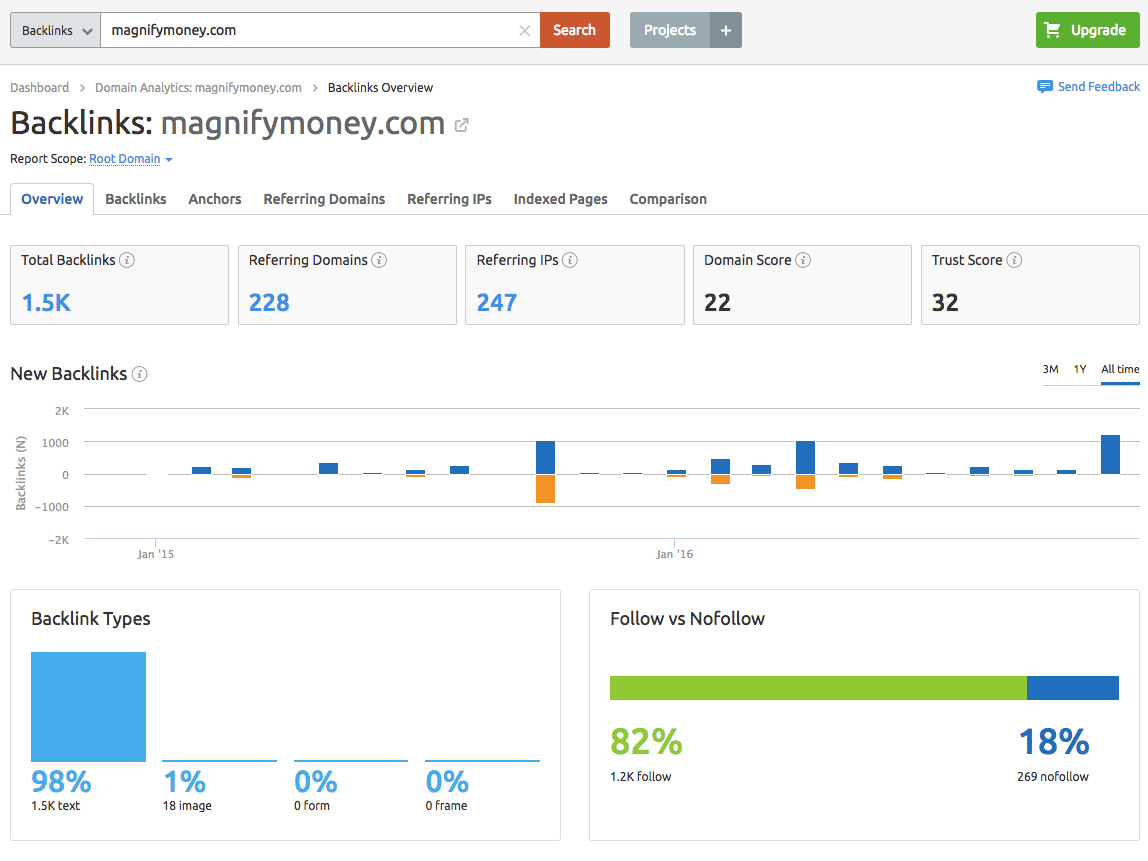















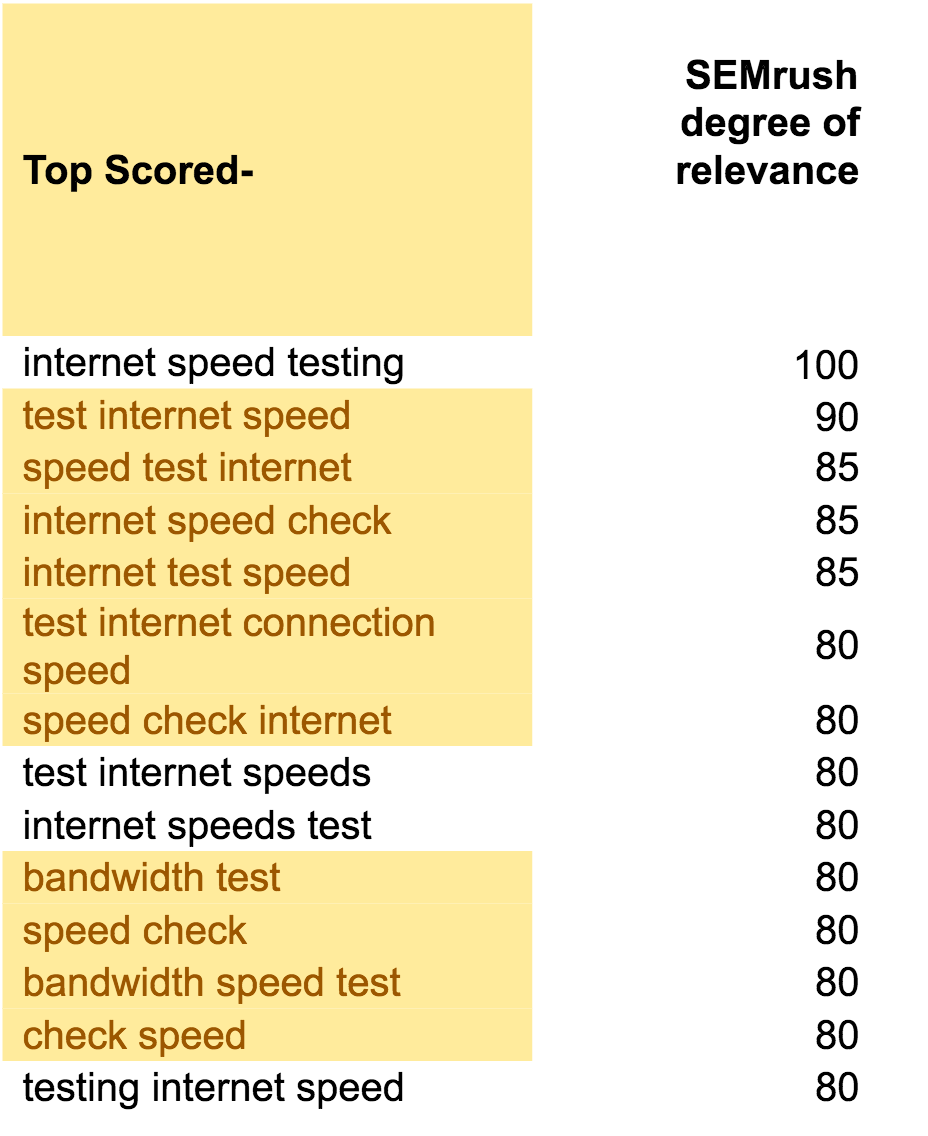
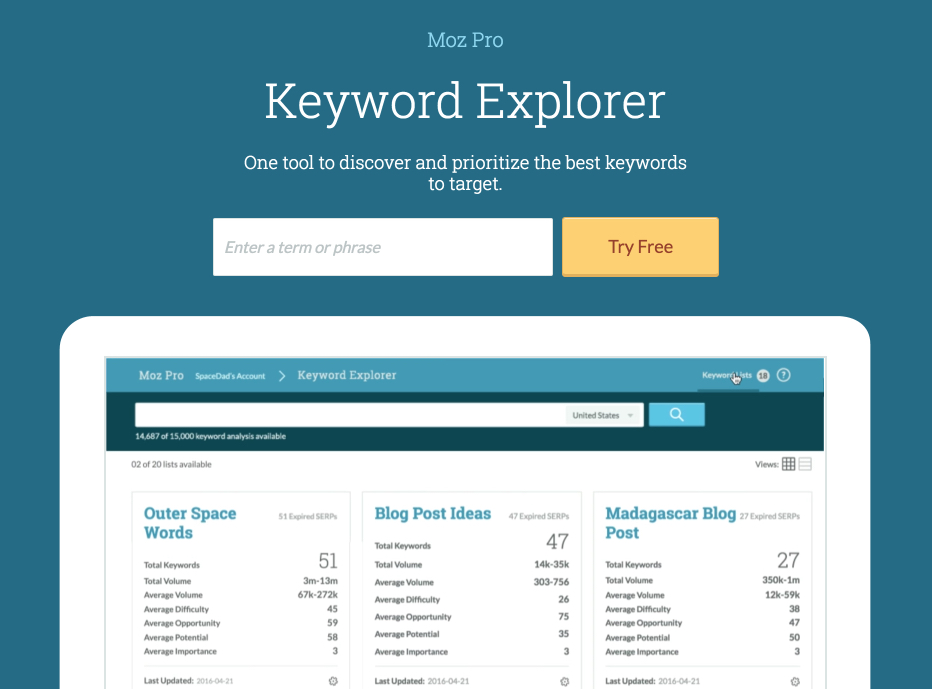
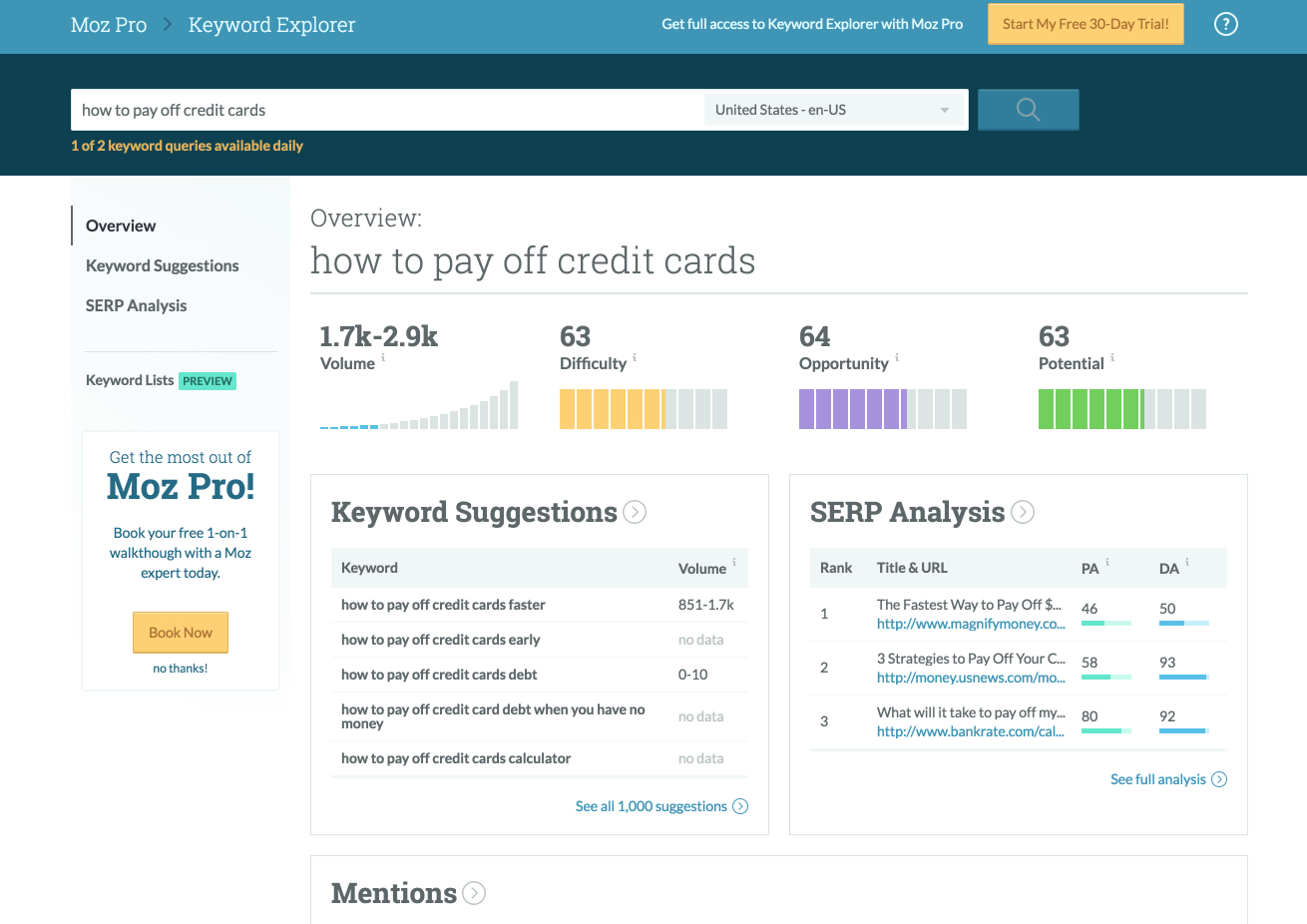

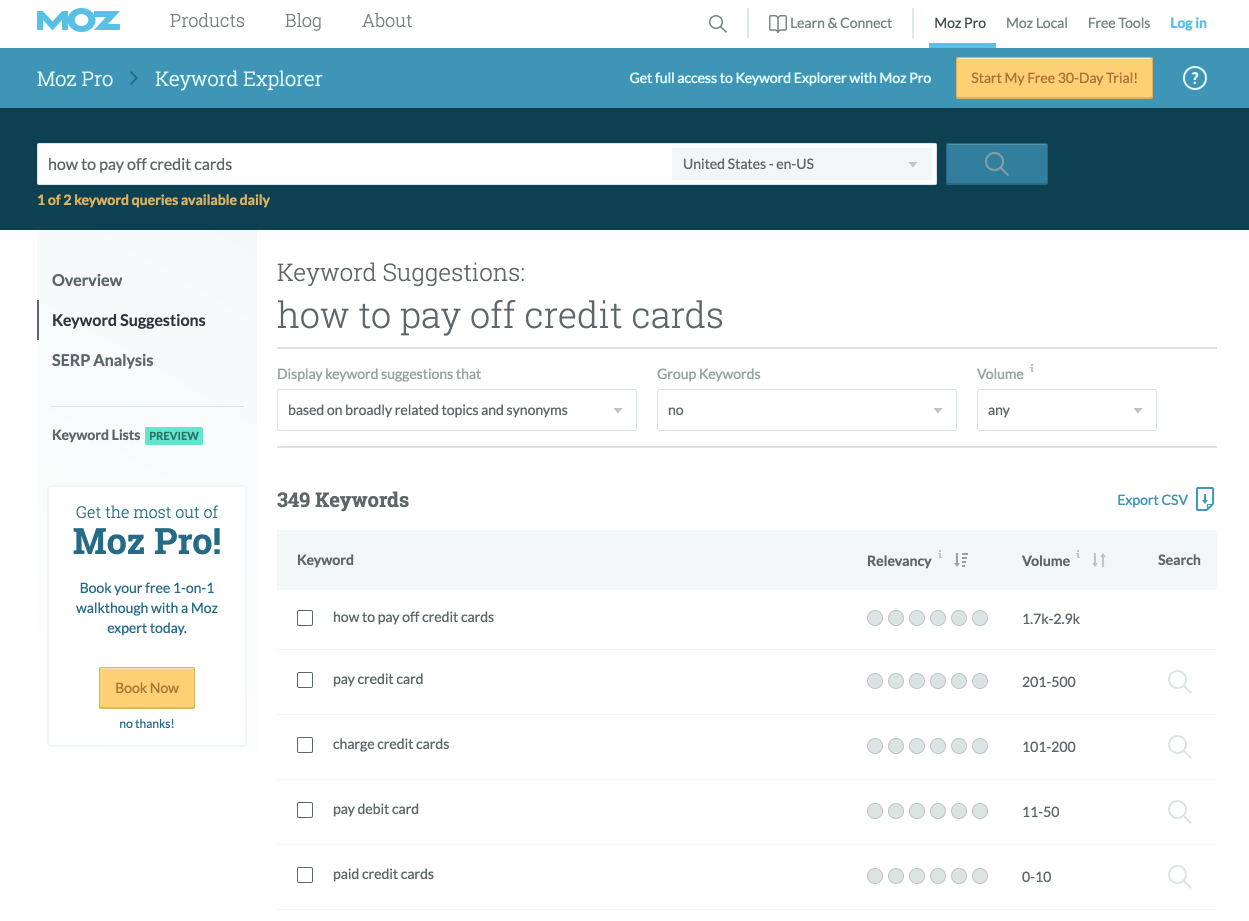




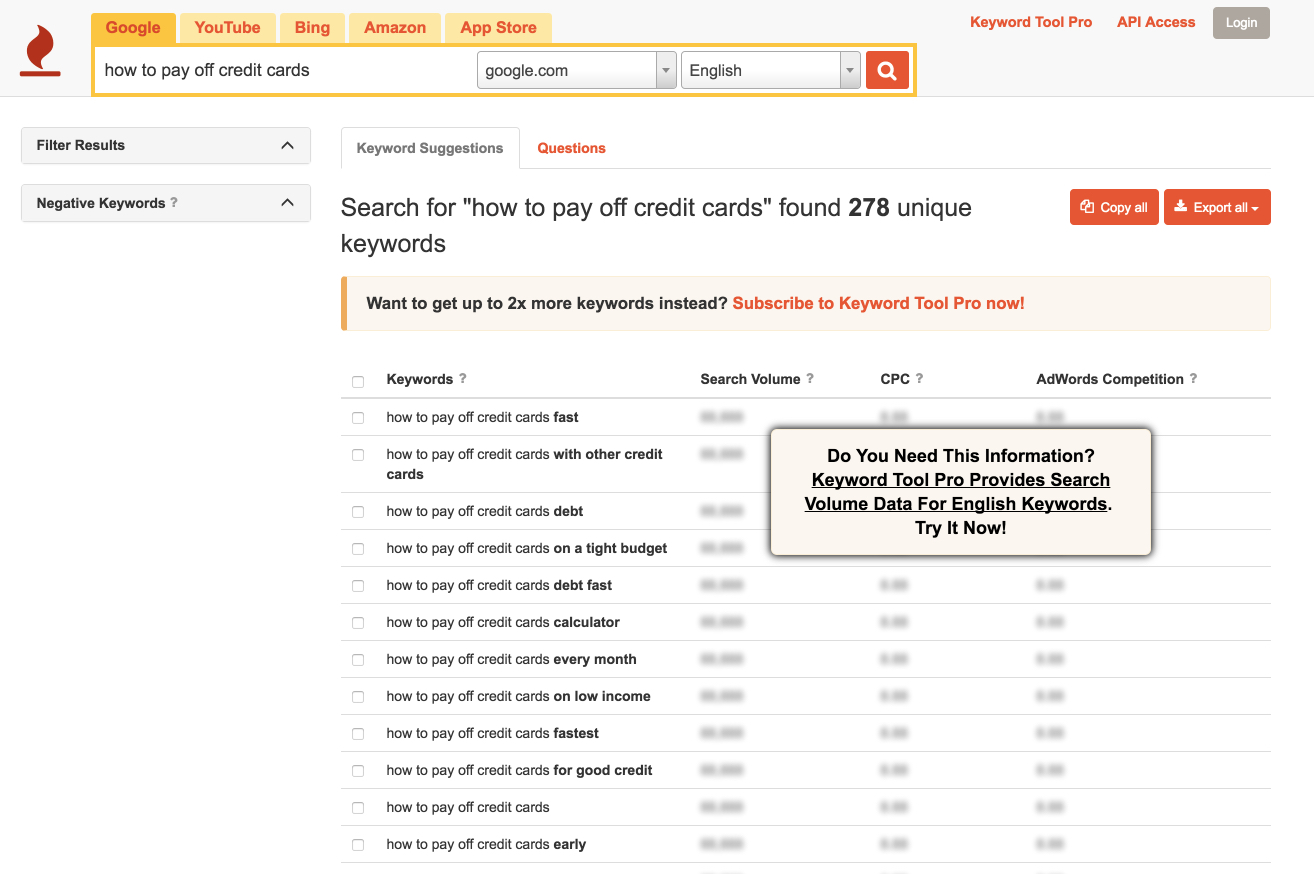
Comments (166)